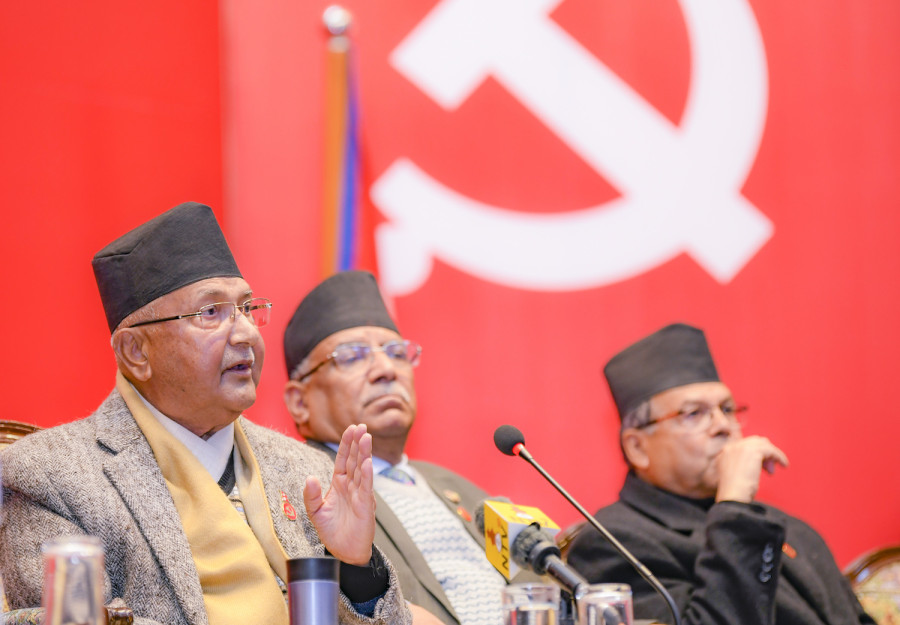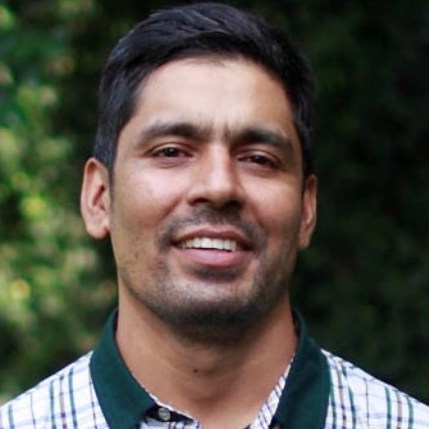Columns
Too quick a fall
The disgraceful exit of a so-called communist government has left the critics of Nepali communism vindicated.
Jiwan Kshetry
Detractors of communists in Nepal often say that the latter perpetuate poverty so that their politics based on class struggle remains relevant. The richer the society, the less the appeal of leftists and communists, goes their argument. They cite the example of the seemingly irreversible decline of the left in India over the past decades to bolster their case. Predictably, communist parties vehemently oppose this narrative. They accuse the capitalists themselves—neo-liberals in particular—of perpetuating poverty by promoting inequitable economic growth. Beyond that, though, various communist outfits have divergent views on what ails Nepali society. They rarely consider any outfit other than their own as the true "communist". And they disagree on questions as basic as whether Nepali society has graduated from the "semi-feudal and semi-colonised" stage to the capitalist one.
After the latest round of polls, communists in Nepal got a rare opportunity to silence their critics forever. The two biggest leftist parties—the CPN-UML led by KP Oli and the CPN Maoist Centre led by Prachanda—fought the election together and achieved an unprecedented, sweeping victory at all levels. The two parties eventually merged to form the Nepal Communist Party (NCP), further consolidating the gains. Whether the new party truly represented the ideology of Marxism and communism has always been debatable. Many Marxist theoreticians often disown "communist" parties like the NCP that engage in electoral politics in capitalist societies as pseudo-communists. In the broader political discourse, though, those parties—most of them with Stalinist party structures—are considered communist parties, as is being done here.
Busting of myths
Either way, after the electoral victory and the formation of the KP Oli-led government, the NCP had the rare opportunity to prove that a leftist party can deliver good governance and material prosperity to the people even within the framework of multiparty democracy. Five years of sound governance and economic progress would have easily deepened the hold of the communists in Nepali politics further and for much longer. The critics would have been proven wrong. Over the three and a half years of their rule, however, things evolved differently. KP Sharma Oli, purportedly the most powerful prime minister in democratic Nepal, has just left office in disgrace after the Supreme Court invalidated his dissolution of Parliament for the second time. The time is perfect for holding a post-mortem of the Oli government.
Oli called himself incorruptible and recurrently promised zero tolerance to corruption in his government. With a feeble and directionless opposition punching even below its miserable weight, Oli's government had got a free hand to legislate and execute its policies. The mood was euphoric in the early days of his government as he promised everything from a trans-Himalayan train from China to mega airports and eight-lane highways.
Soon, however, the government sensed that infrastructure development was easier promised than executed. The same held true for reducing corruption, improving governance and fighting poverty. Doling out resources and privileges to a handful of cronies was far more beneficial for the party and its leaders than promoting entrepreneurship on a broader level. As appointing loyalists in public bodies similarly yielded immediate gains for the party, meritocracy was simply ditched. Ensuring impunity for colleagues with proven corruption charges turned out to be as important as punishing corrupt politicians from the opposition parties.
Corruptibility of power
The results of such blatant misgovernance were predictably grim. With the purportedly strong and stable government failing to deliver year after year, dissatisfaction kept mounting. Then the government used its overwhelming strength in Parliament to stamp out dissent rather than make good the promises made before the polls. A host of bills were advanced restricting civic liberties, including press freedom. Indefinite curfews were declared in public spaces in Kathmandu, where all kinds of protests used to be held. An army of cyber trolls was employed to smear and intimidate critics. The constitutional bodies meant for accountability were cramped with loyalists of the prime minister by changing the rules of their appointment through hastily released ordinances. The institution of the nation's presidency, the head of state, was transformed into a lever to be manipulated by the prime minister at will.
In the meantime, the marriage of convenience between Oli and Prachanda was quietly unravelling, seemingly because Oli failed to honour the commitment to share power with Prachanda temporally. Oli's authoritarian ways in the party were alienating even his comrades from the erstwhile CPN-UML led by Madav Kumar Nepal, further weakening his position in the party. The internecine conflict in the NCP became so intense that Oli went to the extreme of dissolving Parliament rather than risking potential ouster from the post of parliamentary party leader and prime minister. As the government's popularity kept nose-diving, nationalist drums were beaten, upsetting a delicate diplomatic balance with the giant neighbours in the south and the north. Oli went as far as blatantly drawing religion into politics, something fortunately unforeseen in Nepal with the exception of fringe political parties.
Loss of faith
When nothing worked, Oli desperately went to the extreme of dismantling the country's constitutional order by ruling by decree after dissolving Parliament. After the Supreme Court deemed the dissolution unconstitutional and restored the House of Representatives, his party deliberately sabotaged its business. After failing to win the confidence motion in the same Parliament, he conspired with the President to dissolve it once again rather than allow the opposition to form a new government.
After a 168-page rebuke from the Supreme Court, both Oli and President Bidya Devi Bhandari have now been shown their respective positions, and Sher Bahadur Deuba of the Nepali Congress has been sworn in as the new prime minister. Now that power has slipped from his hands despite all attempts to hold on to it, Oli will have plenty of time to lick his self-inflicted wounds. If the past is any guide, though, he will now go full time into conspiring to get back power for himself. But what he cannot regain now is the faith a majority of Nepali citizens had placed on the communists to liberate them from economic depravity that has been sharply deepened by the Covid-19 pandemic. For this round, at least, the critics of Nepal's communists stand vindicated.




 11.12°C Kathmandu
11.12°C Kathmandu















